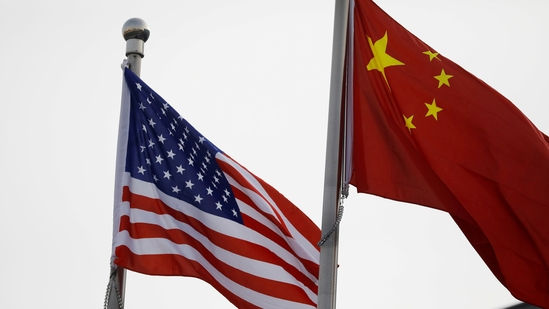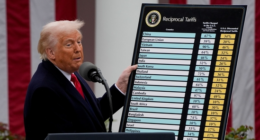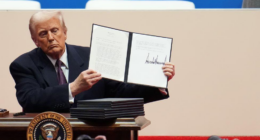Beijing has sharply criticized the latest round of U.S. tariffs imposed by President Donald Trump, calling on Washington to return to “equal-footed consultation” as global markets tumbled in response to the escalating trade conflict.
“The market has spoken,” Chinese foreign ministry spokesperson Guo Jiakun said in a Facebook post Saturday, sharing an image of the U.S. stock market’s steep decline. The statement comes a day after China issued sweeping retaliatory measures following Washington’s announcement of additional tariffs on Chinese imports.
On Friday, President Trump unveiled a fresh 34% tariff hike on Chinese goods, raising the total tariffs on imports from China this year to a staggering 54%. He also moved to eliminate a loophole that previously allowed low-value Chinese packages to enter the U.S. duty-free. In response, Beijing retaliated with mirror 34% levies on all American goods and imposed new export restrictions on certain rare earth elements critical to U.S. industries.
The tit-for-tat actions sent shockwaves through global financial markets. The S&P 500 plunged 9% over the week, marking the worst performance since the height of the COVID-19 pandemic. Other major indices saw similar losses amid investor anxiety over the intensifying economic standoff between the world’s two largest economies.
Chinese commerce bodies across multiple sectors, including healthcare, textiles, and electronics, issued coordinated statements Saturday condemning the tariffs. These organizations urged companies to unite in exploring alternative markets and brace for extended disruptions. The Chamber of Commerce for food and agricultural traders called on Chinese firms to enhance both domestic and international cooperation.
Meanwhile, the Chamber representing metals and chemicals warned the tariffs would significantly increase import costs for U.S. businesses and further burden American consumers with rising prices—exacerbating inflation and raising the risk of a potential recession in the United States.
Despite mounting pressure from markets and trade bodies, President Trump has doubled down on his position, insisting that the tariffs are necessary to protect U.S. interests and curb what he described as “unfair trade practices.”
However, Beijing maintains that dialogue remains the only viable path forward. “Now is the time for the U.S. to stop doing the wrong things,” Guo Jiakun emphasized, “and resolve the differences with trading partners through equal-footed consultation.”
With both nations showing no signs of backing down, the global economic outlook remains on edge as markets brace for further volatility.









